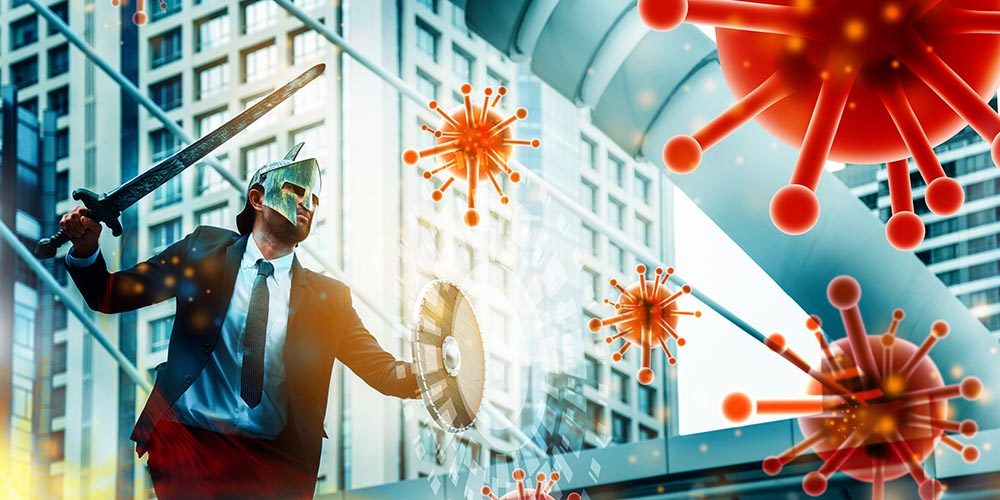
6.5.20 – SSI –
Though we are living in uncertain times, one can predict security’s future by looking to the past.
You don’t need me to tell you that economically, psychologically, physically and mortally, 2020’s second quarter has been a brutal one for the ages. What you may need me to tell you, however, is that few industries are better positioned for the rebound than security.
I truly hope that you and yours have been spared the extent of the COVID-19 crisis’ grimmest brunt, and that as you read this there is perceptible light piercing through the arduous tunnel of gloom. From a security business standpoint, let me to be among the first to light the recovery torch.
Allow me to place things in historical perspective. I was just a few years into my tenure with Security Sales & Integration when the 9/11 attacks struck nearly 20 years ago. That horrific event shook America to its core, but in its wake came a demand and boom in commercial and industrial security the likes of which had never been seen.Related:Adapting to New Customer Habits in the Age of the Pandemic
The ramifications and manifestations were rampant across the board — from heightened cultural awareness to technological innovations to an influx of venture capital to corporate M&A rollups to the issuing of regulatory edicts to a spike in both public and private sector RFPs.
There were caveats. In particular, a lot of the spending was allocated for high-end anti-terror products as opposed to standard security solutions. Moreover, some technologies were overhyped and failed to deliver as promised (e.g. facial recognition) — resulting in an eventual backlash that led to many startups crashing, similar to the dot-com bust.
Regardless, the collective psyche had shifted to place a higher priority on leveraging technology to better secure places where people gather.
Several years later, that momentum was derailed when the bottom fell out under financial institutions and the economy nosedived into the Great Recession. The resilient security industry weathered it better than most, and when the dust cleared commercial security business was good as or better than ever.
And on the residential side, appealing new devices along with smartphone-enabled mobile capabilities rekindled that market by ushering in the connected smart home era.
Then a few years on, the unthinkable took place at Sandy Hook Elementary School in Newtown, Conn., when a gunman killed 26 people, including 20 young children. It was another tragedy that captivated the nation — spurring an outcry for more widespread and sophisticated security and safety measures to be implemented on school campuses throughout America.
Providers of commercial-grade security products and systems including access control, visitor management, mass notification and emergency communications, and video surveillance once again rose to the occasion to answer the call.
Now we find ourselves in the throes of a pandemic, with astonishingly higher stakes and farther-reaching implications than all of those aforementioned calamities combined. The positive to be pulled out of this, I believe, is that the natural law stating for every action there is an equal and opposite reaction will apply.
Once again, the security industry’s manufacturers, distributors, integrators/dealers and consultants are ready and able to step up with solutions that will help people safely return to both commerce and leisure.
What’s more, security firms — rightfully designated “essential” during the lockdowns — can help facilitate the enduring needs of remote workers. I envision an unprecedented post-COVID boom for commercial security business.Related:12 Industry Leaders Tell How COVID-19 Has Forever Changed Security
This will be especially true for access control, video surveillance, sensors, artificial intelligence and monitoring services, as well as subcategories like video analytics, thermal, temperature and heat detection, alerting systems, enhanced PSIM platforms, and screening and scanning devices.
Unfortunately, we’re bound to see some opportunists and overzealous vendors propagate misleading product claims. However, my hope is the industry will carry forth all the better from the lessons learned during the 9/11 shakeout.
Moving forward it will be more critical than ever to keep in close contact with trustworthy suppliers and colleagues to share information and vet available solutions, as well as reach out to customers and prospects as a high-value advisory partner. The new normal remains a moving target.
However, just as it was the more meticulously managed dealer/integrator businesses that hit the ground running after the recession, so too will it be those that have cultivated steady revenue streams, built up cash reserves, retained top talent and pivoted in response to end users’ emergent needs that will prosper in the post-coronavirus landscape.
